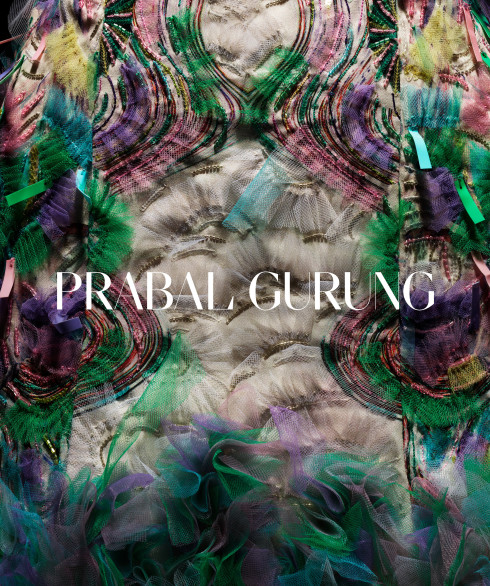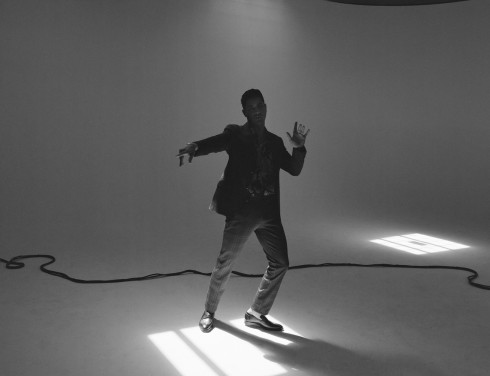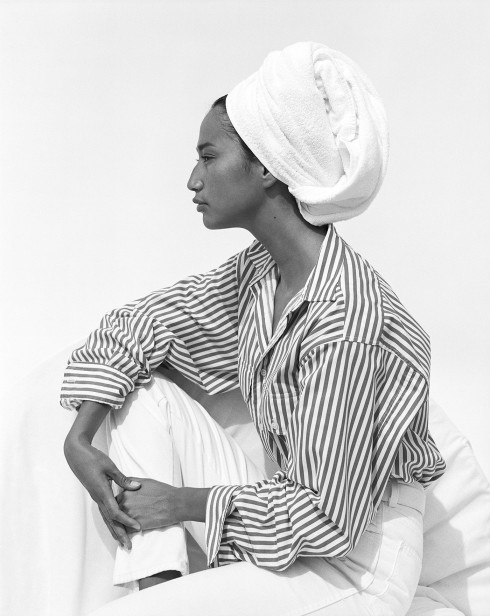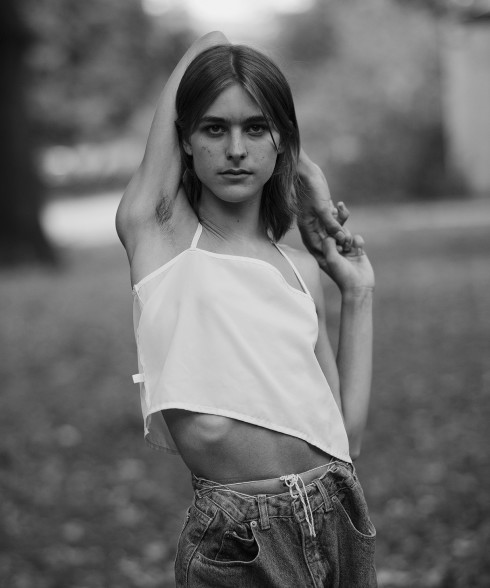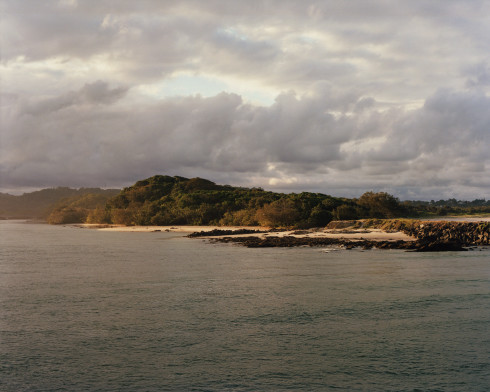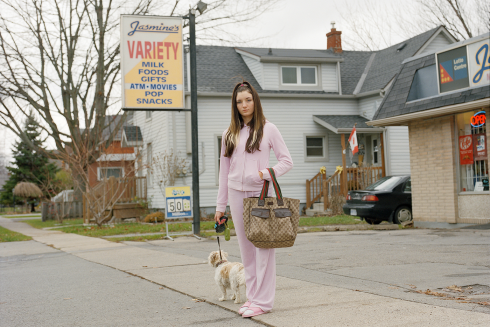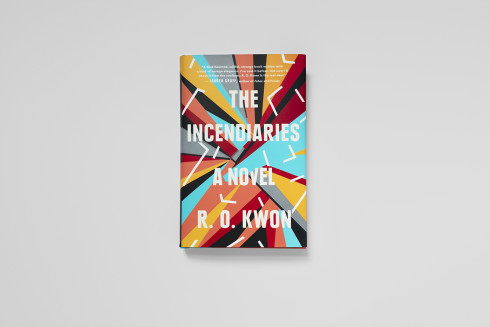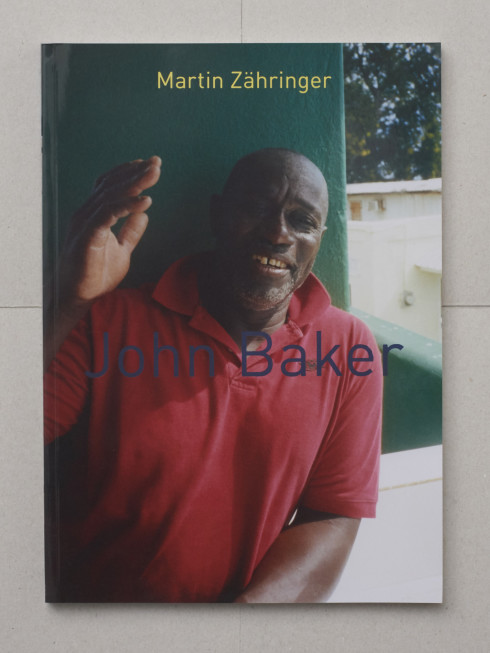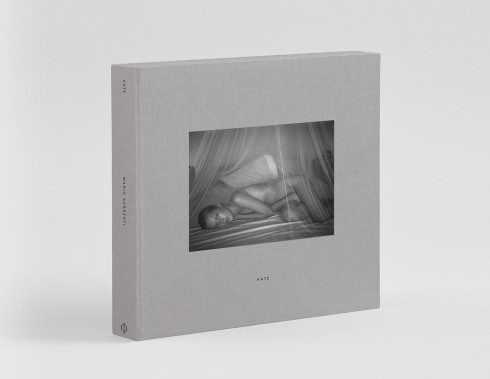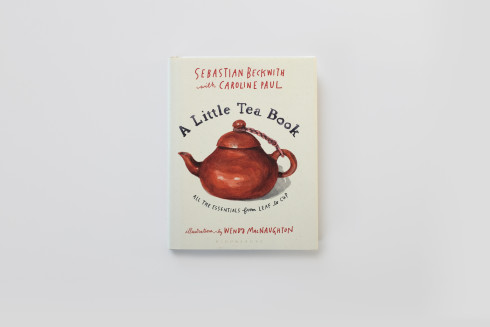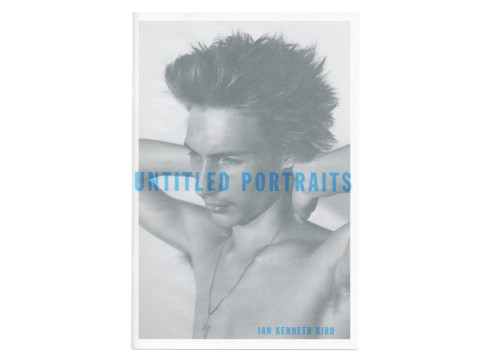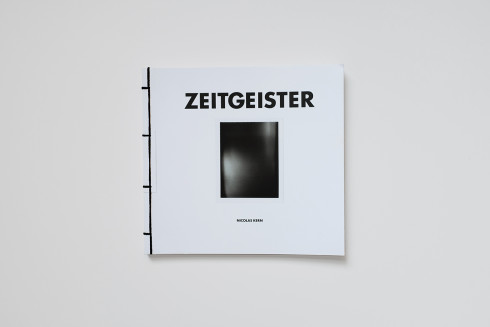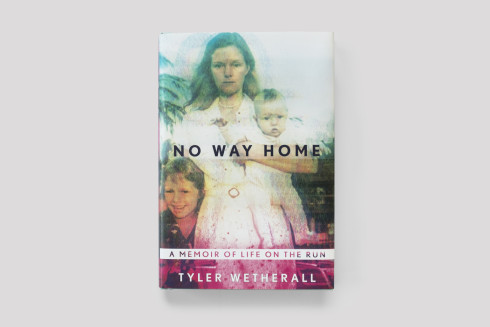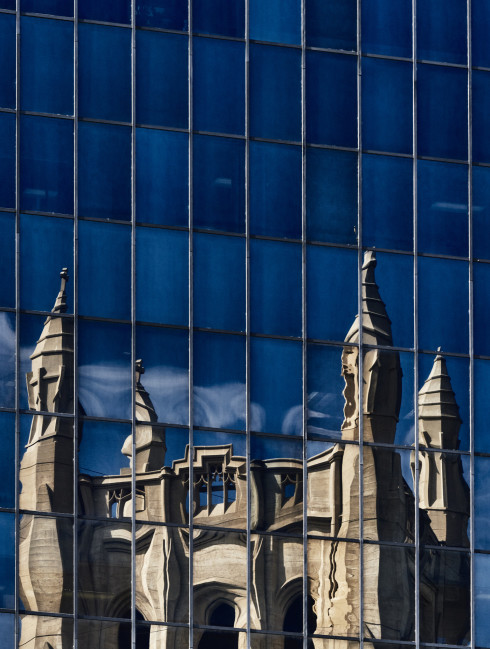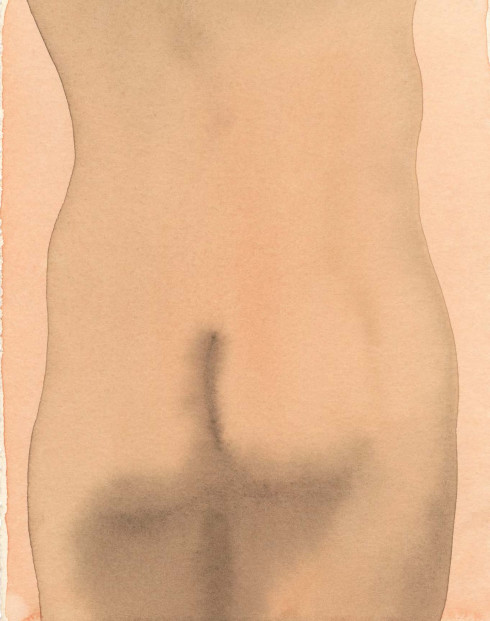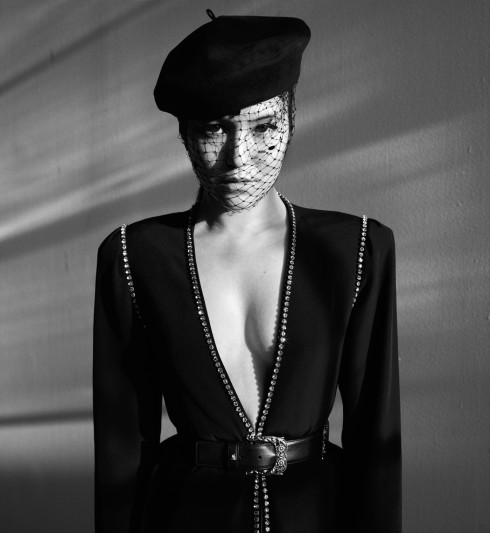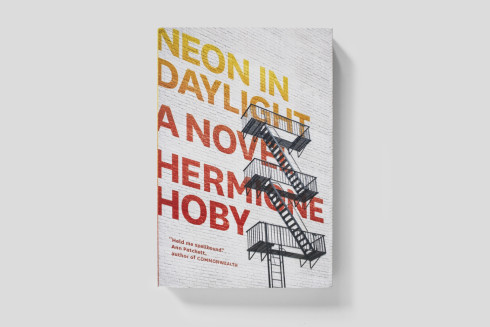
Blazer by Ermenegildo Zegna. T-shirt by Lemaire.
- By
- Céline Lavoie
- Photography by
- Johan Sandberg
Styling by Anna Pesonen. Hair by Pawel Solis at Atomo Management. Grooming by Satoko Watanabe at ArtList. Photographer’s assistant: Thomas Jansson. Stylist’s assistant: Alessia Ansalone. Translation by Alisa Sniderman.
FLORIAN ZELLER
Florian Zeller, who is fast becoming one of France’s most celebrated contemporary playwrights, discovered theater “almost by accident,” he says. “At twenty, I had no idea what would become of my life, but I could never have imagined that theater would play such an important role for me.”
It all started when Zeller was asked to write a libretto for an opera a few years ago. “At that point, I knew more about music than the theater,” he admits. “By chance, I found myself attending rehearsals where there were actors, but also musicians, circus performers, and dancers. I was immediately captivated by this universe and by the magic one calls ‘live performance.’ After this experience, I started to tell myself that I absolutely had to relive it again and come closer to the world of the theater.”
Since then, the 36-year-old writer has gone on to receive two Molières, France’s most prestigious theater award, for the thematically related plays The Mother, in 2010, and then The Father, in 2012. After a successful run in Paris, The Father was an even greater hit in London’s West End. The Tony Award-winning director Doug Hughes will direct its American premiere on Broadway at the Manhattan Theatre Club, which opens tonight with Frank Langella in the lead role of André, a man battling dementia.
Zeller’s literary career is more impressive still, as the young writer had already made a name for himself as a novelist before becoming a playwright, publishing his first novel, Artificial Snow, when he was just twenty-two years old. His acclaimed 2004 novel The Fascination of Evil, which tackles the relationship between the West and Islam, received the distinguished Prix Interallié award and was shortlisted for the Prix Goncourt, an award given to excellent, imaginative works of prose in French. The novel stirred up some controversy in France, as it tells the story of a novelist who is murdered for writing an ambivalent text on Islam. Hasty comparisons to the provocative enfant terrible of French literature Michel Houellebecq followed suit in the media, and Zeller insists that he believes in the strength of the transgressive novel, which has a long and illustrious history. “In the world of the novel, there is a suspension of moral judgment, so that no truth is final,” he says. “Throughout history, the novel has been the sworn enemy of any system, be it political or religious, that claims to hold the final truth. In his own time, Voltaire was already fighting against Catholic fundamentalism.”
When asked whether a relationship exists between his novels and plays, Zeller mentions the key differences between the two genres and his attraction to the more expansive world of the theater. “I believe the fundamental difference is that in the theater, you are engaged in a project larger than yourself. You are released from the solitude of writing,” he explains. “What I find most touching is the simplicity of theater as a vocation. One simply tries to offer the audience a mirror in which it can see, recognize, and understand itself. I find this at once very simple and very beautiful.”
Zeller works a lot and compares the process of writing to the landscape of a dream. “Images present themselves to me through an unpredictable language,” he says. “I advance in the dark and then, suddenly, one moment everything makes sense.” For example, at the onset of writing The Father, Zeller did not think about dementia. He simply created the characters and then “let them speak.” It was only later in the creative process that Zeller realized the central subject of his powerful play.
Without giving away the plot, The Father tells the story of André, who is losing his mind in his old age. Or is it the world around him that’s gone mad? One of the most interesting features of the play, as Zeller himself notes, is that the audience observes the world through André’s eyes. We are inside his head and, therefore, privy to the shifting boundaries of an ailing mind and to the cruelty of those around him. According to Zeller, dementia is “one of the saddest issues of our time” because everyone knows someone who “has lost his or her bearings or identity.” Moreover, we all “fear what our parents might become in old age, what will become of us, and what our children might do with us.” Although the topic of dementia is a grave one, this has not precluded Zeller from constructing his play in what he calls a “playful fashion” and employing humor. The play of perspectives in The Father—subtitled “a tragic farce”—disorients and reinforces the theme of the play. The spectators are meant to feel as though they are trying to “escape out of a labyrinth,” Zeller says, adding that one of his goals was to create a story that is “not told, but experienced.” He adds, “In the theater, everything is in a sense comic, because life itself is comic, even when it’s cruel, brutal, and tragic.”
Zeller’s tragicomic style might remind one of Harold Pinter. Indeed, Zeller feels a great admiration for the British author, who’s had a direct influence on how the young French playwright writes. In particular, the dark and disorienting notes in The Father recall the “comedy of menace” of Pinter’s early works, such as The Birthday Party and The Homecoming. In Zeller’s play, “the real ceases to be coherent,” he explains, but in a way that is more reflective of everyday life rather than in an avant-garde or absurdist manner. The subject matter itself—dementia—causes the breakdown of the form and is a conscious “æsthetic move” on the part of the playwright.
The Father is not the first time that Zeller has explored mental issues. The Mother deals with clinical depression and also plays with shifting perspectives. The central character is a middle-aged woman who has to face the fact that she is becoming superfluous in the lives of her husband and children. The Mother, with Gina McKee in the lead role of Anne, opened in London earlier this year to rave reviews.
Zeller’s plays are translated into English by the Academy Award- winning playwright and screenwriter Christopher Hampton, who first saw Zeller’s work in French in Paris and decided to introduce the young playwright to the English-speaking public. The Frenchman has seen the London version of The Father and, although he recognized his text, the production struck him as “very English.” “This is, of course, normal,” he says. “In a performance, one glimpses a country, and every country has its own way of laughing, being moved, and fighting its phantoms.” Although his work has been translated into many languages, Zeller still considers himself a thoroughly French writer (“I dream and breathe in French”). There are few French authors that Zeller considers his influences, but he does name the Czech-French writer Milan Kundera as one of his favorites.
The current year is already in full swing for Zeller. His newest play, titled L’envers du décor (Behind the Scenes), opened in Paris in January. It features one of Zeller’s favorite actors—Daniel Auteuil—and is “a less serious comedy” than The Father, focusing on the tensions romance causes within a group of friends. The lighter tone has given Zeller room to play—across genres, tones, and even formats. It’s what he loves most about the theater, the possibility to move freely between different æsthetic registers—“from farce to tragedy and from tragedy to comedy”—as one does in real life.
The Father runs through June 12 at the Samuel J. Friedman Theatre, New York.
- By
- Céline Lavoie
- Photography by
- Johan Sandberg
Styling by Anna Pesonen. Hair by Pawel Solis at Atomo Management. Grooming by Satoko Watanabe at ArtList. Photographer’s assistant: Thomas Jansson. Stylist’s assistant: Alessia Ansalone. Translation by Alisa Sniderman.
